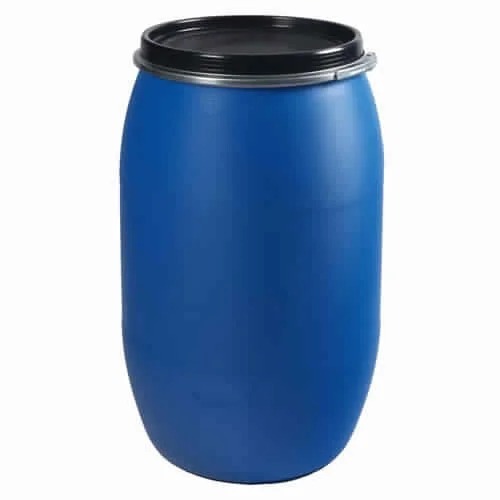Product Details
Ethanol 200Ltr Drum
Ethanol, a simple organic compound with a wide range of applications, stands as one of the most versatile chemicals in modern society. Renowned for its diverse uses in industries ranging from fuel production to pharmaceuticals and beverages, ethanol plays a pivotal role in enhancing product quality, efficiency, and sustainability. Let’s explore the intricacies of ethanol, unraveling its benefits and the myriad ways it contributes to different sectors.
Description
Ethanol: Unveiling Its Benefits and Versatile Applications
Ethanol, a simple organic compound with a wide range of applications, stands as one of the most versatile chemicals in modern society. Renowned for its diverse uses in industries ranging from fuel production to pharmaceuticals and beverages, ethanol plays a pivotal role in enhancing product quality, efficiency, and sustainability. Let’s explore the intricacies of ethanol, unraveling its benefits and the myriad ways it contributes to different sectors.
Chemical Composition and Properties:
Ethanol, also known as ethyl alcohol or grain alcohol, is a clear, colorless liquid with the chemical formula C₂H₅OH. It is classified as a primary alcohol due to the presence of a hydroxyl (-OH) group attached to a carbon atom. Ethanol is highly soluble in water and polar solvents, making it suitable for various applications. It exhibits a characteristic odor and taste and is flammable when exposed to an ignition source.
Applications and Benefits:
- Fuel Production: Ethanol serves as a renewable and environmentally friendly alternative fuel source, particularly in the transportation sector. Produced primarily from renewable biomass feedstocks such as corn, sugarcane, and cellulosic materials, ethanol is used as a blendstock in gasoline fuels (E10, E15, E85) to reduce greenhouse gas emissions and improve air quality. Ethanol-blended fuels offer comparable performance to conventional gasoline while reducing dependence on fossil fuels and mitigating climate change.
- Beverage Industry: Ethanol is a key ingredient in the production of alcoholic beverages such as beer, wine, and spirits. It is produced through fermentation of sugars by yeast, resulting in the conversion of sugars into ethanol and carbon dioxide. Ethanol imparts characteristic flavors, aromas, and intoxicating effects to alcoholic beverages, making them enjoyable for consumption in moderation. The beverage industry relies on ethanol as a primary alcohol source for the production of a wide range of alcoholic products.
- Pharmaceuticals and Healthcare: Ethanol finds extensive use in the pharmaceutical and healthcare sectors as a solvent, preservative, and active ingredient in medications, disinfectants, and antiseptics. It serves as a vehicle for drug delivery in oral and topical medications, ensuring optimal solubility and bioavailability of active pharmaceutical ingredients (APIs). Ethanol-based antiseptics and sanitizers help prevent microbial contamination and infection transmission in healthcare settings, ensuring patient safety and hygiene.
- Industrial Chemicals and Solvents: Ethanol is utilized as a solvent and raw material in the production of various industrial chemicals, solvents, and intermediates. It serves as a versatile solvent for extraction, purification, and synthesis processes in chemical manufacturing. Ethanol-based solvents find applications in coatings, paints, inks, adhesives, and cleaning formulations, providing excellent solvency, volatility, and compatibility with diverse substrates.
- Personal Care and Cosmetics: Ethanol is incorporated into personal care products and cosmetics as a solvent, carrier, and antimicrobial agent. It serves as a vehicle for active ingredients in skincare formulations such as lotions, creams, and serums, enhancing product efficacy and absorption into the skin. Ethanol-based mouthwashes and oral care products help maintain oral hygiene by reducing plaque formation and bacterial growth, promoting fresh breath and healthy gums.
- Laboratory and Analytical Applications: In laboratory and analytical chemistry applications, ethanol serves as a versatile solvent, reagent, and standard for various experiments and analyses. It is used for sample preparation, extraction, chromatography, and titrations in research, quality control, and educational laboratories. Ethanol-based reagents and solutions are employed in environmental testing, pharmaceutical analysis, and forensic investigations, ensuring accurate and reliable results.
Conclusion:
In conclusion, ethanol emerges as a versatile and indispensable compound with a multitude of applications and benefits across diverse industries. From its role as a renewable fuel source and beverage ingredient to its contributions in pharmaceuticals, personal care products, and industrial chemicals, ethanol plays a vital role in enhancing product quality, performance, and sustainability. As industries continue to innovate and evolve, the importance of ethanol in addressing complex challenges and advancing technology is expected to grow, further solidifying its status as a valuable and essential chemical compound in modern-day applications.





Reviews
There are no reviews yet.